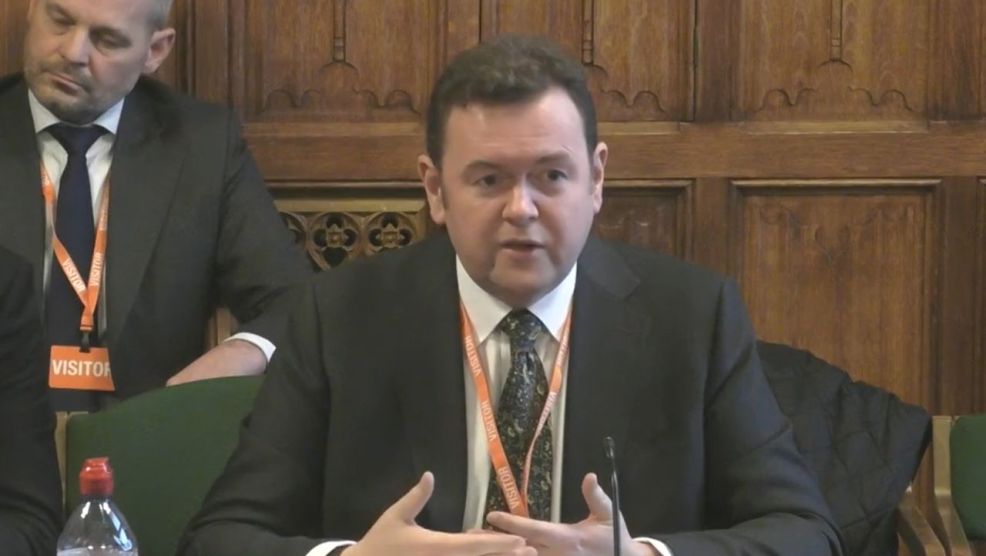

Press releases

Chief Executive at the Recruitment and Employment Confederation (REC) Neil Carberry warned of the threat of ‘false self-employment’ booming in response to elements of the government’s plan on zero-hours contracts in the Employment Rights Bill, during a House of Commons Business and Trade Committee Make Work Pay programme inquiry meeting, held yesterday (Tuesday). He also highlighted concerns about umbrella company compliance being unaddressed by the Bill and the need to focus on better enforcement of existing law as a priority.
The government is legislating to tackle what it calls ‘one-sided flexibility in zero-hours contracts’ through a right to guaranteed hours, where the number of hours offered reflects the hours worked by the worker during a reference period. And a right to reasonable notice of shifts and a right to payment for shifts cancelled or curtailed at short notice.
REC has argued for a carve out for agency workers from much of the new legislation covering zero hours workers as agency workers have a fundamentally different, two-sided, flexible model of engagement. Some unions claim that agency workers shouldn’t be treated differently – but they already are, with enhanced rights delivered by their own Act of Parliament, enforcement body and two separate sets of specialist regulations. Agency workers are already well protected by law – better enforcement is what they need, not to be collateral damage in the government’s war against bad direct employers.
Neil Carberry told the Committee meeting at the Palace of Westminster:
“Agency workers do not exist in a monopsony – they have choice. They sign up to multiple agencies and each agency has the ability to place them in many places. They feed back to us the value of being able to say, ‘I don’t like it there’, ‘I don’t want to go there’ or ‘put me somewhere else’.
“When we think about extending powers on Zero Hours Contracts to agency workers, we are talking about one million people who went to work as temps this morning. The articulation from government as to why agency might be covered by these powers is that ‘we want to avoid direct employers using agency as a loophole’. I don’t think one million agency temps should be taken for granted like that. I think we need to accept that agency workers are protected by their own Act, two sets of regulations, an independent regulator – which needs some more resource - and defined statements in Key Information Documents (KIDs).
“Agency worker is largely two-sided flexibility and that is why we want to ensure agency workers have choice.
“We need to deal with agency differently; two suggestions from us: strengthening some element of Agency Workers regulations; and do more on hours in the KIDs. It feels like there is a real risk of, in an attempt to avoid evasion by direct employers, bringing one million temps into this regime [will be] driving some of the behaviour we have seen reported in the past months where some direct employers are using platform sites to engage people who are patently workers as self-employed. The real enemy is false self-employment, that is our primary concern about reality of the Bill.”
REC is also advocating for greater regulation and transparency in the umbrella company sector, aiming to protect workers from unethical practices.
On umbrella companies, Neil Carberry told the MPs:
“The Bill has nothing to say about the primary thing that my members think the government should regulate which is the use of umbrella companies, and that is a major lacuna.
“Umbrella companies are largely acting as employer of a percentage of temps. Once they exist in a sector, they are quite difficult for agencies who payroll their own temps to compete with. There are good standards around those who audit umbrella companies, like the FCSA, but there are examples of pretty poor payroll practice in the sector. We would like to see the kind of regulation that the Employment Agencies Act [and] the Conduct Regulations bring to employment businesses (agencies) brought to umbrella companies as well.”
REC suggest placing the burden for reasonable notice solely on the agency is unworkable, in many cases changes or cancellations to shifts occur because of client demands, or workers cancelling at short notice. In these scenarios, an agency should not be liable if they themselves have not been given reasonable notice of a shift, argues REC. Reasonable will vary according to custom and practice for different sectors.
On compensation for shift cancellations, Neil Carberry told the MPs:
“Certainly, we’re seeing in the contracts that our members are signing with large businesses for instance shift cancellation payments becoming commercially more common. No one wants a situation where someone’s arranged childcare, paid for the bus, standing in the queue when they get a text [to cancel a shift]. If someone’s there they should be getting paid. Our only point would be is that payment should be made by the people who made that decision. By definition I don’t think what you want to do is to end up with hundreds of subsectors but there must be an allowance wherever we end up to say there are legitimate and rapid changes of demand that then it is reasonable for employers to offer shifts or remove potential shifts based on the fact that there just will not have the money in the business to pay for those shifts. I think there should be different reasonable periods based on different circumstances.”
If you run an employment business you can sometimes charge a transfer fee (called a ‘temp-to-perm’ fee) to hirers if they give a permanent job to a worker you have provided.
On potentially banning transfer fees, Neil Carberry told the MPs:
“We are strongly of the view that we keep transfer fees no matter what to avoid unscrupulous employers just wanting to hire a load of workers as temps and move them across to permanent without costs. Or else you end up in a situation where people who would have been hired directly spending six months as temps with a different status which is probably not the labour market we want to build.”
Ends
Notes to editors:
1. Agency workers are currently covered by: Employment Agencies Act 1973; Conduct of Employment Agencies and Employment Businesses Regulations 2003; Agency Worker Regulations 2010; and Employment Agency Standards Inspectorate
2. REC is calling for further clarification on the definition of ‘low hours’ for guaranteed hours contracts, particularly in umbrella companies, to ensure transparency and fairness across employment models. The 2022 Exclusivity Terms for Zero Hours Workers regulations, which made exclusivity clauses unenforceable for workers earning below £123 per week, suggest this threshold as a baseline for ‘low hours’ - this is roughly equivalent to 10 hours a week; REC suggests this limit would also need to apply to umbrella companies, who currently often use an annualised contract (usually equivalent to seven hours a week) to ensure fairness across the labour market. The definition of ‘employer’ in section 44 of the Employment Rights Bill is broad, with the status of umbrella companies needing to be decided by an Employment Tribunal. This lack of clarity could allow umbrella companies to avoid responsibility for guaranteed hours and shift cancellations, says REC.
3. Britain’s temporary labour market is working well for people, firms and the modern economy – with about one million temps working every day. Its success at bringing and retaining people in the labour force is vital to the new government’s central mission of driving growth. We are proud to share the voices of temporary workers - showing first-hand the impact temporary work has on the lives of individuals. These stories emphasise how important it is that employment regulation protects workers but does not stop people from accessing flexible work. The 'Voice of the worker' campaign is underpinned by our survey of 520 temp agency workers in Britain in June 2024, where we asked why agency work matters to them.
Click here to view all REC press releases and for more information and interview enquiries, contact the REC Press Office on 020 7009 2157, 020 7009 2129 or pressoffice@rec.uk.com. Outside of regular office hours, please call 07702 568 829.
The REC is the voice of the recruitment industry, speaking up for great recruiters. We drive standards and empower recruitment businesses to build better futures for great candidates and themselves. We are champions of an industry which is fundamental to the strength of the UK economy.
Find out more about the Recruitment & Employment Confederation at www.rec.uk.com
Share this article